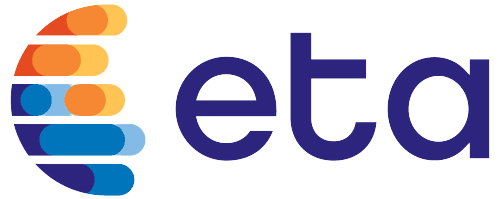As a high-risk business owner, navigating the financial service world can feel impossible. Banks, merchant acquirers, and credit card issuers often refuse to work with businesses in high-risk industries, like high risk merchant accounts, making it difficult for these businesses to grow. If your company has faced these difficulties, you have most likely been assigned a high-risk Merchant Category Code (MCC).
What Is a High-Risk MCC?
A high-risk MCC is a specific four-digit code credit card companies use to classify businesses that are more likely to experience financial issues such as fraud or chargebacks.
These codes help financial institutions and payment processors identify businesses that exhibit increased levels of risk. High-risk merchant activities often require more careful monitoring and management due to the nature of their products, services, or business models.
From online gambling and adult entertainment to travel agencies and debt collection services, high-risk MCCs encompass a wide range of industries. Being labeled as high-risk doesn’t mean a company participates in illegal activity. It does, however, indicate that there is a greater potential for financial disputes and regulatory scrutiny.
Gaining a deeper understanding of these four-digit numbers can help business owners navigate the complexities of merchant services, ensuring they can effectively manage risks while continuing to provide their services.
What Are High-Risk MCCs Used For?
Unfortunately, most banks and merchant service providers can't afford to assume liability for excessive chargebacks and other inherent risks many high-risk merchants face. By classifying businesses into different risk categories, these institutions can monitor and mitigate the risks they assume.
High-risk MCCs play a crucial role in this financial ecosystem. These codes are essential tools that allow financial institutions to categorize businesses based on their risk profile. This allows for more informed decision-making and better resource allocation.
Risk Management
One of the primary uses of high-risk MCCs is risk management. Financial institutions rely on these codes to identify businesses that may pose a higher risk of financial instability, fraud, or chargebacks.
Fraud Prevention
High-risk MCCs are also instrumental in fraud prevention. Financial institutions can apply more stringent security measures and monitoring practices by flagging businesses that fall into high-risk categories. This proactive approach helps detect and prevent fraudulent activities more efficiently, safeguarding both merchants and consumers from potential financial losses.
Regulatory Compliance
Maintaining regulatory compliance is another critical function of high-risk MCCs. Different industries face varying levels of regulatory scrutiny, and high-risk businesses often operate in sectors with stricter regulations.
By accurately categorizing high-risk businesses, financial institutions can ensure each business adheres to relevant legal and regulatory requirements, minimizing the risk of non-compliance penalties and fostering a compliant business environment.
Eligibility for Financial Services
High-risk MCCs also influence a business’s eligibility for financial services. Banks and payment processors use these codes to assess the level of risk associated with providing services such as credit, loans, and payment processing.
While high-risk businesses may face unique limitations, understanding their risk category helps them better prepare for the application process and find suitable financial partners that can accommodate their specific needs.
How Do I Find My Business's High-Risk MCC?
Finding your business's high-risk MCC is a straightforward process that can provide valuable insights into how your business is classified by financial institutions. The most direct way to identify your high-risk MCC is to check with your payment processor or acquiring bank. These institutions assign each merchant a code when they set up a merchant account.
You can also find your MCC on your merchant statements, where it's often listed along with other transaction details. Additionally, some credit card networks and industry associations publish comprehensive lists of MCCs, which can be useful for ensuring that your business is accurately categorized.
Knowing your high-risk MCC helps you understand how your business is viewed in terms of risk. It can also help ensure smoother interactions with merchant service providers and better alignment with industry standards.
The Three Tiers of High-Risk MCCs
High-risk MCCs are categorized into three tiers based on the level of risk they represent. These tiers help financial institutions and payment processors manage the potential challenges associated with different types of businesses more effectively. Understanding these tiers can help high-risk business owners navigate the financial landscape and specific requirements of their risk classification.
Tier 1
The first tier of high-risk MCCs represents the highest level of risk. Businesses in this category often face the strictest scrutiny and the highest fees from payment processors due to their increased likelihood of fraud, chargebacks, and regulatory issues.
Examples of these industries include online gambling (MCC 7995), dating or escort services (MCC 7273), and financial services (MCC 6012). These businesses must implement robust security measures and maintain rigorous compliance with industry regulations to mitigate their high-risk status.
Tier 2
The second Tier of high-risk MCCs encompasses businesses with a moderate to high level of risk. While still considered risky, these businesses typically face slightly less stringent regulations and lower fees than Tier 1.
Examples include cinemas (MCC 7832), professional services (MCC 8999), and service stations (MCC 5451). These businesses often deal with high volume merchant account transaction volumes—and, consequently, frequent cancellations or refunds—necessitating careful financial management and proactive customer service strategies to maintain stability.
Tier 3
The third tier of high-risk MCCs includes businesses with an elevated risk level, though they are generally more stable than those in Tiers 1 and 2. These businesses may experience higher rates of chargebacks or legal issues but are considered less risky overall.
Examples include utilities (MCC 4900), grocery stores (MCC 5411), and fast-food (MCC 5814). Businesses in this tier can benefit from understanding their risk profile and working closely with financial institutions to implement best practices that minimize potential issues and enhance their financial health.
What Are the Consequences of Having a High-Risk MCC?
Having a high-risk Merchant Category Code (MCC) comes with several important consequences that can impact your business's operations and financial management. One of the primary effects is the potential for higher processing fees, as payment processors and banks charge more to cover the increased risk associated with these businesses.
Also, high-risk merchants often face stricter underwriting criteria and more rigorous application processes when seeking financial services, making securing loans or establishing new merchant accounts more challenging. There may also be more frequent account reviews and ongoing monitoring to ensure compliance with industry standards and regulatory requirements.
This heightened scrutiny can require increased administrative efforts and robust risk management practices. However, understanding and effectively managing your high-risk MCC can help you navigate these challenges, maintain positive relationships with financial institutions, and ensure your business thrives.
How Zen Payments Can Help
When a business has been given a high-risk MCC, most low-risk merchant service providers refuse to take on their accounts. Even many high-risk providers take advantage of these businesses by charging them exorbitant fees.
At Zen Payments, we understand the difficulties that high-risk business owners face. That's why we strive to offer top-quality merchant services at an affordable price. Not only do we offer customized high-risk merchant accounts; but we also offer ecommerce merchant account providers services with chargeback tools and secure payment gateways with fraud protection.
Invest in your company's success with Zen Payments. Get started with our high-risk merchant services today!






